Outstanding Reviewers

Each year, our editorial office will select ten Outstanding Reviewers to award their contribution to our journal. While it is our opinion that these referees have demonstrated professionalism, and provided critical evaluation and comments that help the authors to improve their work, we are no less grateful to the many more referees not named below.
To show our thanks, we present here the profiles those awarded our 'outstanding reviewer' accolade.
Year 2022
Yong-bin Chen
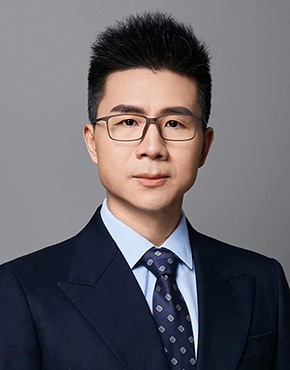 Dr. Yong-bin Chen, Vice Director of the Academic Committee of the Key Laboratory of Animal Models and Human Disease Mechanisms of Kunming Institute of Zoology, CAS, uses the interdisciplinary study combined with evolutionary, developmental, and tumor biology knowledge to identify novel genes and related signaling pathways involved in tumorigenesis, and screen the potential anti-cancer leading compounds. Dr. Chen was supported by the National Special Support Program for High-level Talents in Science and Technology Innovation, and awarded the Special and the first Prize for Science and Technology Progress of Yunnan Province, the 7th Yunnan Provincial Youth Science and Technology Award.
Dr. Yong-bin Chen, Vice Director of the Academic Committee of the Key Laboratory of Animal Models and Human Disease Mechanisms of Kunming Institute of Zoology, CAS, uses the interdisciplinary study combined with evolutionary, developmental, and tumor biology knowledge to identify novel genes and related signaling pathways involved in tumorigenesis, and screen the potential anti-cancer leading compounds. Dr. Chen was supported by the National Special Support Program for High-level Talents in Science and Technology Innovation, and awarded the Special and the first Prize for Science and Technology Progress of Yunnan Province, the 7th Yunnan Provincial Youth Science and Technology Award.
http://sourcedb.kiz.cas.cn/zw/zjrc/yjy/201207/t20120711_3614214.html
Zhe-sheng Chen
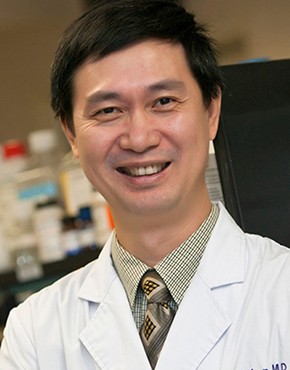 Professor Chen is the Director of Institute for Biotechnology at St. John’s University. He is an expert of drug resistance in cancer, with the goal of his lab being the development of more effective anticancer drugs. Dr. Chen is an editor-in-chief of Drug Resistance Updates (DRU). He has published more than 400 peer-reviewed articles. His articles were published in CSR, STTT, Advanced Materials, Molecular Cancer, Drug Resistance Updates, Cancer Research. Dr. Chen received many awards including AACR young investigator award, Hongkong Cancer Congress young investigator award, Yasuda Distinguished Medical Research Award, St. John’s University Distinguished Achievement Award etc.
Professor Chen is the Director of Institute for Biotechnology at St. John’s University. He is an expert of drug resistance in cancer, with the goal of his lab being the development of more effective anticancer drugs. Dr. Chen is an editor-in-chief of Drug Resistance Updates (DRU). He has published more than 400 peer-reviewed articles. His articles were published in CSR, STTT, Advanced Materials, Molecular Cancer, Drug Resistance Updates, Cancer Research. Dr. Chen received many awards including AACR young investigator award, Hongkong Cancer Congress young investigator award, Yasuda Distinguished Medical Research Award, St. John’s University Distinguished Achievement Award etc.
https://www.stjohns.edu/academics/faculty/zhe-sheng-chen
Jing-yuan Fang
 Professor Jing-yuan Fang is the Chief Physician and Director of the Department of Gastroenterology of Renji Hospital, Shanghai Jiaotong University School of Medicine. He has been a postdoctoral researcher and guest researcher at NIH and University of Michigan for nearly 4 years since 1998. His current research focuses on diagnosis, treatment and prevention of precancerous diseases of the digestive tract. He has published more than 200 papers including top journals such as Cell, Lancet Oncology, Cancer Discovery, Gastroenterology, JNCI, etc. He is a distinguished professor of the "Yangtze River Scholars" from the Ministry of Education and a recipient of the National Outstanding Youth Fund. He obtained three national invention patent authorizations, and won the second prize of the National Science and Technology Progress Award in 2008, the first prize of the Chinese Medical Science and Technology Award in 2007, and the first prize of the Shanghai Science and Technology Progress Award in 2005.
Professor Jing-yuan Fang is the Chief Physician and Director of the Department of Gastroenterology of Renji Hospital, Shanghai Jiaotong University School of Medicine. He has been a postdoctoral researcher and guest researcher at NIH and University of Michigan for nearly 4 years since 1998. His current research focuses on diagnosis, treatment and prevention of precancerous diseases of the digestive tract. He has published more than 200 papers including top journals such as Cell, Lancet Oncology, Cancer Discovery, Gastroenterology, JNCI, etc. He is a distinguished professor of the "Yangtze River Scholars" from the Ministry of Education and a recipient of the National Outstanding Youth Fund. He obtained three national invention patent authorizations, and won the second prize of the National Science and Technology Progress Award in 2008, the first prize of the Chinese Medical Science and Technology Award in 2007, and the first prize of the Shanghai Science and Technology Progress Award in 2005.
https://www.renji.com/default.php?mod=article&do=detail&tid=2606
Peng Hong
 Dr. Peng Hong is Associate Professor at Sun Yat-sen University and Adjunct Research Scientist at VA NY Harbor Healthcare System Brooklyn Campus. He received his medical degree from Peking University Health Science Center and PhD in molecular and cellular biology from SUNY Downstate Medical Center. The research in his lab focuses on molecular aspects of microbial immunology and their clinical implications, with representative works published in Cell Host & Microbe, Lancet Microbe, Med, and Signal Transduction and Targeted Therapy. His research is supported by the Science and Technology Department of Tibet, Sun Yat-sen University, and US Department of Veterans Affairs.
Dr. Peng Hong is Associate Professor at Sun Yat-sen University and Adjunct Research Scientist at VA NY Harbor Healthcare System Brooklyn Campus. He received his medical degree from Peking University Health Science Center and PhD in molecular and cellular biology from SUNY Downstate Medical Center. The research in his lab focuses on molecular aspects of microbial immunology and their clinical implications, with representative works published in Cell Host & Microbe, Lancet Microbe, Med, and Signal Transduction and Targeted Therapy. His research is supported by the Science and Technology Department of Tibet, Sun Yat-sen University, and US Department of Veterans Affairs.
http://www.sysush.com/content/c560b9f1-2638-4c4c-a8ea-375504a8b201
Shi-bo Jiang
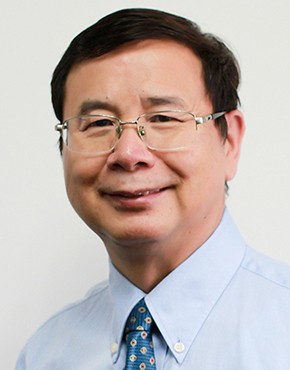 Dr. Shi-bo Jiang received his M.S. and Ph.D. degrees from the First and Fourth Military Medical University, respectively. In 2010, he joined Fudan University to conduct research on antiviral drugs and vaccines. He has discovered a series of anti-HCoV peptide drug candidates. In 2004, he reported for the first time in the world that RBD of SARS-CoV is the best target for SARS vaccine and neutralizing antibody. He has undertaken more than 30 NIH/NSFC and cross-sectional research projects (over 200 million RMB in funding). He has published 516 papers in Nature, Science, Cell, Lancet, Cell Res., STTT and other SCI journals, with a total IF of 3,262 (6.3 per paper). He has been granted 43 US and Chinese patents, 11 of which have been assigned, and has several medical products on the market.
Dr. Shi-bo Jiang received his M.S. and Ph.D. degrees from the First and Fourth Military Medical University, respectively. In 2010, he joined Fudan University to conduct research on antiviral drugs and vaccines. He has discovered a series of anti-HCoV peptide drug candidates. In 2004, he reported for the first time in the world that RBD of SARS-CoV is the best target for SARS vaccine and neutralizing antibody. He has undertaken more than 30 NIH/NSFC and cross-sectional research projects (over 200 million RMB in funding). He has published 516 papers in Nature, Science, Cell, Lancet, Cell Res., STTT and other SCI journals, with a total IF of 3,262 (6.3 per paper). He has been granted 43 US and Chinese patents, 11 of which have been assigned, and has several medical products on the market.
https://basicmed.fudan.edu.cn/9e/2c/c28574a302636/page.htm
Lu Lu
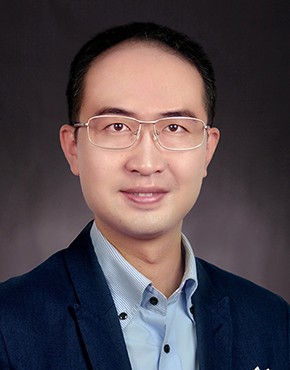 Dr. Lu Lu received his PhD from Tsinghua University, and then worked as a postdoctoral fellow at LFK Institute, New York Blood Center. He joined the School of Basic Medicine, Fudan University in 2011. His main research interests include 1) research on the invasion mechanism and prevention strategies of novel coronaviruses, HIV and other important viruses (peptide and protein-based drugs, broad-spectrum vaccines, etc.); 2) research and development of innovative biomaterials based on peptide domain engineering technology, application of new technologies in functional protein development.
Dr. Lu Lu received his PhD from Tsinghua University, and then worked as a postdoctoral fellow at LFK Institute, New York Blood Center. He joined the School of Basic Medicine, Fudan University in 2011. His main research interests include 1) research on the invasion mechanism and prevention strategies of novel coronaviruses, HIV and other important viruses (peptide and protein-based drugs, broad-spectrum vaccines, etc.); 2) research and development of innovative biomaterials based on peptide domain engineering technology, application of new technologies in functional protein development.
https://basicmed.fudan.edu.cn/9a/ab/c28574a301739/page.htm
Qi-yi Tang
 Dr. Qi-yi Tang is an Associate professor at the department of Microbiology at College of Medicine in Howard University. He received his PhD degree from Peking Union Medical College (PUMC) & Chinese Academy of Medical Sciences (CAMS) in 1997. His major goal of research is to understand how the viral infection causes diseases through virus-host interactions. He has more than 20 years’ experience in Virology, with specific training and expertise in gene regulation, signal transduction, molecular biology and cellular innate defenses. His representative works published in the Emerg Microbes Infect., PLoS Pathog., and J Virol etc.
Dr. Qi-yi Tang is an Associate professor at the department of Microbiology at College of Medicine in Howard University. He received his PhD degree from Peking Union Medical College (PUMC) & Chinese Academy of Medical Sciences (CAMS) in 1997. His major goal of research is to understand how the viral infection causes diseases through virus-host interactions. He has more than 20 years’ experience in Virology, with specific training and expertise in gene regulation, signal transduction, molecular biology and cellular innate defenses. His representative works published in the Emerg Microbes Infect., PLoS Pathog., and J Virol etc.
https://profiles.howard.edu/qiyi-tang
Tian-lei Ying
 Dr. Tian-lei Ying is a professor at Fudan University. He received his PhD from Fudan University and postdoctoral training at the National Institutes of Health. His research directions include synthetic immunology and antibody engineering. His representative works have been published in Cell, Cell Host Microbe., Emerg Microbes Infect., and Signal Transduction and Targeted Therapy. He is the recipient of numerous awards, including "Grand Challenges" Young Scientist Award by Gates Foundation, Translational Medicine Innovation Award, Shanghai Municipal Science and Technology Progress Award First Class, the US Federal Technology Transfer Award.
Dr. Tian-lei Ying is a professor at Fudan University. He received his PhD from Fudan University and postdoctoral training at the National Institutes of Health. His research directions include synthetic immunology and antibody engineering. His representative works have been published in Cell, Cell Host Microbe., Emerg Microbes Infect., and Signal Transduction and Targeted Therapy. He is the recipient of numerous awards, including "Grand Challenges" Young Scientist Award by Gates Foundation, Translational Medicine Innovation Award, Shanghai Municipal Science and Technology Progress Award First Class, the US Federal Technology Transfer Award.
Fang-fang Zhou
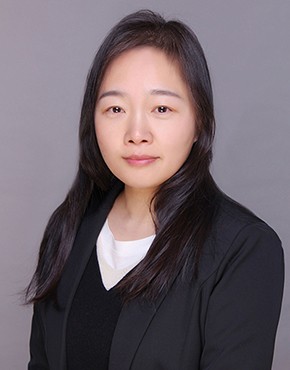 At the end of 2014, Professor Zhou joined Soochow University and became a full professor and independent principle investigator at the Institutes of Biology and Medical Sciences, Soochow University. Professor Zhou's research mainly focused on 1) The mechanisms and regulation of Innate antiviral immune response; 2) Molecular mechanisms of escaping innate immune surveillance during tumor cell metastasis. Professor Zhou acquired Distinguished Young Scholars of National Natural Science Foundation(2021) and Young Scholars of Changjiang Scholars Award Plan(2017).
At the end of 2014, Professor Zhou joined Soochow University and became a full professor and independent principle investigator at the Institutes of Biology and Medical Sciences, Soochow University. Professor Zhou's research mainly focused on 1) The mechanisms and regulation of Innate antiviral immune response; 2) Molecular mechanisms of escaping innate immune surveillance during tumor cell metastasis. Professor Zhou acquired Distinguished Young Scholars of National Natural Science Foundation(2021) and Young Scholars of Changjiang Scholars Award Plan(2017).
http://ibms.suda.edu.cn/ibms_en/3694/list.htm
Rajkumar Kalra
 Dr Rajkumar Kalra work at the Okinawa Institute of Science and Technology (OIST), Japan. He works in the field of aging, immunity, and disease biology. He previously acquired professional research experience working at the National Institute of Advanced Industrial Science & Technology (AIST), Japan, after finishing research training as a JSPS postdoctoral fellow. Earlier he received his PhD from DBT-National Center for Cell Science (NCCS), Pune, India, working on cell transformation biology. Impact of aging on immunity and its role in disease biology is his present research focus.
Dr Rajkumar Kalra work at the Okinawa Institute of Science and Technology (OIST), Japan. He works in the field of aging, immunity, and disease biology. He previously acquired professional research experience working at the National Institute of Advanced Industrial Science & Technology (AIST), Japan, after finishing research training as a JSPS postdoctoral fellow. Earlier he received his PhD from DBT-National Center for Cell Science (NCCS), Pune, India, working on cell transformation biology. Impact of aging on immunity and its role in disease biology is his present research focus.
https://www.researchgate.net/profile/Rajkumar-Kalra
Year 2023
Dong Gao
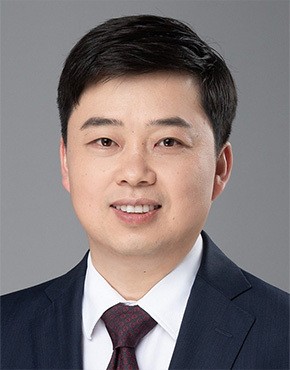 Dr. Dong Gao is a Principal Investigator at Shanghai Institute of Biochemistry and Cell Biology, Chinese Academy of Sciences. He received his PhD from Peking University and postdoctoral training at Memorial Sloan-Kettering Cancer Center. His research interests focus on organoids, stem cell and cancer. His representative works have been published in Cell, Cancer Cell, Cell Stem Cell, Nat Genet, J Clin Invest, Nat Commun etc.
Dr. Dong Gao is a Principal Investigator at Shanghai Institute of Biochemistry and Cell Biology, Chinese Academy of Sciences. He received his PhD from Peking University and postdoctoral training at Memorial Sloan-Kettering Cancer Center. His research interests focus on organoids, stem cell and cancer. His representative works have been published in Cell, Cancer Cell, Cell Stem Cell, Nat Genet, J Clin Invest, Nat Commun etc.
http://www.sibcb.ac.cn/gaolab/
Frank Kirchhoff
 Dr. Frank Kirchhoff is Professor and director of the Institute of Molecular Virology in Ulm, Germany since 2009. He studied Biology, received his PhD degree in 1991 at the University of Göttingen and performed his postdoctoral training in the research group of Ronald C. Desrosiers at the New England Regional Primate Research Center at Harvard Medical School. He established an independent group at the University of Erlangen in 1994 and moved to Ulm initially as Assistant professor in 2001. One of his main research interests is to elucidate how viruses manipulate the immune system, cross species barriers and cause disease. Furthermore, he is interested in the discovery of natural human factors that play a role in viral pathogenesis and transmission and in their optimization for novel therapeutic or preventive approaches. Dr. Kirchhoff has authored or co-authored about 300 publications and received several awards including the Gottfried Wilhelm Leibniz award of the German Research Foundation. He is a member of the German Academy of Sciences (Leopoldina) and serves on several advisory boards.
Dr. Frank Kirchhoff is Professor and director of the Institute of Molecular Virology in Ulm, Germany since 2009. He studied Biology, received his PhD degree in 1991 at the University of Göttingen and performed his postdoctoral training in the research group of Ronald C. Desrosiers at the New England Regional Primate Research Center at Harvard Medical School. He established an independent group at the University of Erlangen in 1994 and moved to Ulm initially as Assistant professor in 2001. One of his main research interests is to elucidate how viruses manipulate the immune system, cross species barriers and cause disease. Furthermore, he is interested in the discovery of natural human factors that play a role in viral pathogenesis and transmission and in their optimization for novel therapeutic or preventive approaches. Dr. Kirchhoff has authored or co-authored about 300 publications and received several awards including the Gottfried Wilhelm Leibniz award of the German Research Foundation. He is a member of the German Academy of Sciences (Leopoldina) and serves on several advisory boards.
https://www.uniklinik-ulm.de/molecular-virology.html
Xiancai Ma
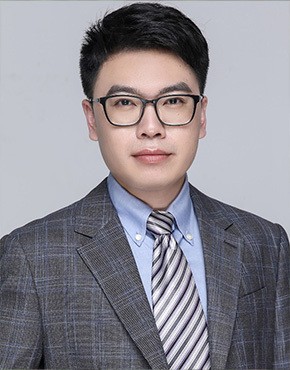 Dr. Xiancai Ma is a principal investigator at Department of Drug and Vaccine Development, Guangzhou National Laboratory. He received his Ph.D. and postdoctoral training from Zhongshan School of Medicine, Sun Yat-sen University. His research areas focus on immunological mechanism of virus-host interaction and nanoparticle vaccine development, especially focusing on studies of coronaviruses and HIV-1. Representative works have been published on Immunity, Signal Transduct Target Ther, EMBO J, Cell Mol Immunol, eLife, EMBO Rep, and many others. Dr. Ma is the recipient of National Special Support Program for High-level Youth Talent.
Dr. Xiancai Ma is a principal investigator at Department of Drug and Vaccine Development, Guangzhou National Laboratory. He received his Ph.D. and postdoctoral training from Zhongshan School of Medicine, Sun Yat-sen University. His research areas focus on immunological mechanism of virus-host interaction and nanoparticle vaccine development, especially focusing on studies of coronaviruses and HIV-1. Representative works have been published on Immunity, Signal Transduct Target Ther, EMBO J, Cell Mol Immunol, eLife, EMBO Rep, and many others. Dr. Ma is the recipient of National Special Support Program for High-level Youth Talent.
https://orcid.org/0000-0002-4934-4221
Jun Ren
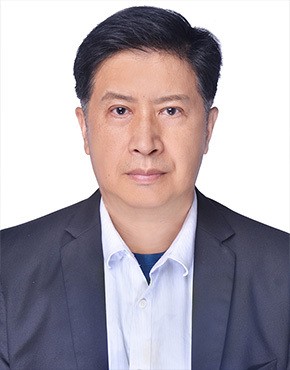 Dr. Jun Ren earned his Ph.D. in 1994 from University of Alberta, Canada, in physiology, following his medical training in China (Beijing University and Peking Union Medical College). In 1994, he became a post-doctoral fellow in Wayne State University School of Medicine (Internal Medicine), where he served for two years. He remained at Wayne State University until 1998, working as a research instructor of physiology. He was an Assistant Professor of Physiology at the University of North Dakota School of Medicine and Health Sciences from 1998-2002 and then an Associate Professor of University of Wyoming from 2002-2005. He was promoted to full professor in 2005 and was appointed as Associate Dean for Research in the College of Health Sciences at the University of Wyoming until late 2020. Dr. Ren is currently an affiliated Associate Professor at the University of Washington (Dept of Laboratory Medicine and Pathology) and holds a joint professorship in Dept of Cardiology at Zhongshan Hospital Fudan University. His major area of research is related to cardiac pathophysiology in alcoholism, diabetes, obesity and aging. His research was funded by the American Heart Association, American Diabetes Association and NIH. He is a first or corresponding author of more than 600 peer-reviewed papers (H index=108). He has served as an editor or on editorial board for a number of journals including Science Bulletin, Hypertension, Diabetes, Journal of Molecular and Cellular Cardiology, BBA Molecular Basis of Disease, Cardiovascular Toxicology and Clinical and Experimental Pharmacology and Physiology.
Dr. Jun Ren earned his Ph.D. in 1994 from University of Alberta, Canada, in physiology, following his medical training in China (Beijing University and Peking Union Medical College). In 1994, he became a post-doctoral fellow in Wayne State University School of Medicine (Internal Medicine), where he served for two years. He remained at Wayne State University until 1998, working as a research instructor of physiology. He was an Assistant Professor of Physiology at the University of North Dakota School of Medicine and Health Sciences from 1998-2002 and then an Associate Professor of University of Wyoming from 2002-2005. He was promoted to full professor in 2005 and was appointed as Associate Dean for Research in the College of Health Sciences at the University of Wyoming until late 2020. Dr. Ren is currently an affiliated Associate Professor at the University of Washington (Dept of Laboratory Medicine and Pathology) and holds a joint professorship in Dept of Cardiology at Zhongshan Hospital Fudan University. His major area of research is related to cardiac pathophysiology in alcoholism, diabetes, obesity and aging. His research was funded by the American Heart Association, American Diabetes Association and NIH. He is a first or corresponding author of more than 600 peer-reviewed papers (H index=108). He has served as an editor or on editorial board for a number of journals including Science Bulletin, Hypertension, Diabetes, Journal of Molecular and Cellular Cardiology, BBA Molecular Basis of Disease, Cardiovascular Toxicology and Clinical and Experimental Pharmacology and Physiology.
Chengdi Wang
 Dr. Chengdi Wang is a Principal Investigator and doctoral supervisor in the Department of Pulmonary and Critical Care, West China Hospital, Sichuan University. He received his PhD in Clinical Medicine from West China School of Medicine, Sichuan University. He has been committed to the basic, clinical and translational research of respiratory diseases including lung cancer and respiratory infectious diseases. He has published more than 50 research articles as the first/co-first and corresponding author in Cell, Nat Biomed Eng, Signal Transduct Target Ther, Mol Cancer, Nat Commun, npj Digit Med, Semin Cancer Biol, etc. His research achievements have won the second Prize of National Science and Technology Progress in 2020, the first Prize of Science and Technology Progress in Sichuan Province in 2022, and the High-impact Respiratory Academic Paper Award of the Chinese Thoracic Society.
Dr. Chengdi Wang is a Principal Investigator and doctoral supervisor in the Department of Pulmonary and Critical Care, West China Hospital, Sichuan University. He received his PhD in Clinical Medicine from West China School of Medicine, Sichuan University. He has been committed to the basic, clinical and translational research of respiratory diseases including lung cancer and respiratory infectious diseases. He has published more than 50 research articles as the first/co-first and corresponding author in Cell, Nat Biomed Eng, Signal Transduct Target Ther, Mol Cancer, Nat Commun, npj Digit Med, Semin Cancer Biol, etc. His research achievements have won the second Prize of National Science and Technology Progress in 2020, the first Prize of Science and Technology Progress in Sichuan Province in 2022, and the High-impact Respiratory Academic Paper Award of the Chinese Thoracic Society.
http://www.wchscu.cn/news/doctordetail?doctorId=1305753025251512320
Jin Wei
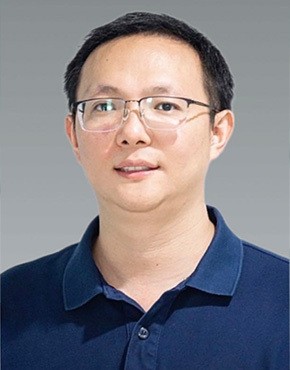 Dr. Jin Wei received his PhD from Wuhan University, and then worked as a Postdoctoral Associate at Yale University. In 2022, he joined Wuhan Institute of Virology as a Principal Investigator. The goal of his laboratory is to understand how viruses interact with the host, microbiome, and environment to cause disease at mucosal barrier surfaces. His representative works have been published in Cell, Nat Genet, Immunity, Proc Natl Acad Sci U S A, and PLOS Pathog etc.
Dr. Jin Wei received his PhD from Wuhan University, and then worked as a Postdoctoral Associate at Yale University. In 2022, he joined Wuhan Institute of Virology as a Principal Investigator. The goal of his laboratory is to understand how viruses interact with the host, microbiome, and environment to cause disease at mucosal barrier surfaces. His representative works have been published in Cell, Nat Genet, Immunity, Proc Natl Acad Sci U S A, and PLOS Pathog etc.
https://people.ucas.ac.cn/~jinwei?language=en
Ningshao Xia
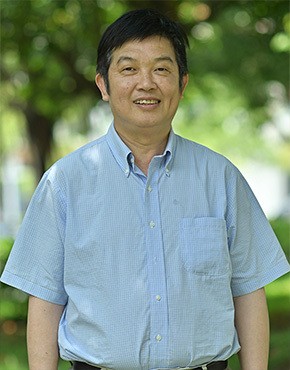 Prof. Ningshao Xia, Director of National Institute of Diagnostics and Vaccine Development in Infectious Diseases of Xiamen University, Director of State Key Laboratory of Vaccines for Infectious Diseases of Xiang An Biomedicine Laboratory, has focused on research and development of vaccines and diagnostic reagents against infectious diseases. He and his team have successfully launched the world’s first Hepatitis E vaccine, the first Chinese domestic HPV vaccine, the world’s first influenza virus vector COVID-19 vaccine for intranasal spray, the world’s first rapid test for antibody to HIV-1 in urine, the world’s first rapid test for antigen to HEV in urine. He has published more than 500 papers in SCI-indexed journals such as N Engl J Med, Lancet, Lancet Respir Med, Lancet Infect Dis, Sci Transl Med, Cell Host Microbe, Nat Microbiol, Proc Natl Acad Sci U S A. He is the first researcher from the mainland China in the ranking of global Top 20 translational researchers in 2016 launched by the renowned journal of Nature Biotechnology, and in the ranking of 2020 once again.
Prof. Ningshao Xia, Director of National Institute of Diagnostics and Vaccine Development in Infectious Diseases of Xiamen University, Director of State Key Laboratory of Vaccines for Infectious Diseases of Xiang An Biomedicine Laboratory, has focused on research and development of vaccines and diagnostic reagents against infectious diseases. He and his team have successfully launched the world’s first Hepatitis E vaccine, the first Chinese domestic HPV vaccine, the world’s first influenza virus vector COVID-19 vaccine for intranasal spray, the world’s first rapid test for antibody to HIV-1 in urine, the world’s first rapid test for antigen to HEV in urine. He has published more than 500 papers in SCI-indexed journals such as N Engl J Med, Lancet, Lancet Respir Med, Lancet Infect Dis, Sci Transl Med, Cell Host Microbe, Nat Microbiol, Proc Natl Acad Sci U S A. He is the first researcher from the mainland China in the ranking of global Top 20 translational researchers in 2016 launched by the renowned journal of Nature Biotechnology, and in the ranking of 2020 once again.
https://nidvd.xmu.edu.cn/info/1101/1106.htm
Junjie Xiao
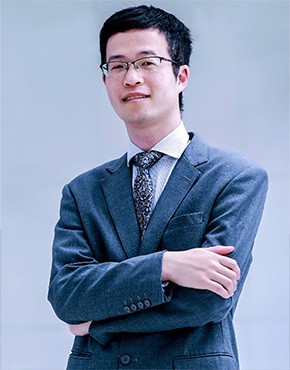 Dr. Junjie Xiao is currently a Professor at Shanghai University. He is the Executive Dean of School of Life Science at Shanghai University. His major research interest is heart failure and exercise training, especially using exercise as a platform to identify novel targets for enhancing cardiac regeneration and combating cardiovascular diseases. He is the author or co-author of many scientific articles, including Circulation, Circulation Res, Cell Metab, Nat Commun, Annu Rev Genomics Hum Genet, and BMC Med. He is also the Associate Editor of J Cardiovasc Transl Res, Editorial Board of J Sport Health Sci, Social Media Editor of J Mol Cell Cardiol, etc. He has been the reviewer of Physiol Rev, Circulation Res, Cell Rep Med, Hypertension, J Am Coll Cardiol, Mol Ther, etc. He obtained 2018 and 2019 Peer Review Awards (Top 1% in Field, Publons).
Dr. Junjie Xiao is currently a Professor at Shanghai University. He is the Executive Dean of School of Life Science at Shanghai University. His major research interest is heart failure and exercise training, especially using exercise as a platform to identify novel targets for enhancing cardiac regeneration and combating cardiovascular diseases. He is the author or co-author of many scientific articles, including Circulation, Circulation Res, Cell Metab, Nat Commun, Annu Rev Genomics Hum Genet, and BMC Med. He is also the Associate Editor of J Cardiovasc Transl Res, Editorial Board of J Sport Health Sci, Social Media Editor of J Mol Cell Cardiol, etc. He has been the reviewer of Physiol Rev, Circulation Res, Cell Rep Med, Hypertension, J Am Coll Cardiol, Mol Ther, etc. He obtained 2018 and 2019 Peer Review Awards (Top 1% in Field, Publons).
https://bio.shu.edu.cn/info/1048/13142.htm
Long Zhang
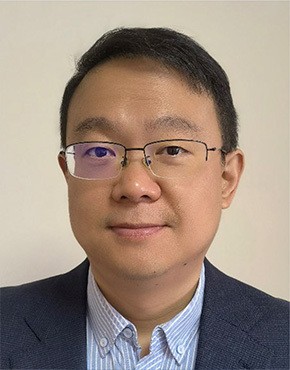 Dr. Long Zhang is currently a PI and doctoral supervisor of Life Sciences Institute, Zhejiang University. He received his Ph.D. degrees from Tsinghua University, and postdoctoral training in Leiden University Medical Center. In 2013, he joined Zhejiang University to conduct research on tumor metastasis and immunity. His research mainly focuses on important and/or novel post-translational modifications (PTMs) in human health and diseases. He has published over 130 papers in world leading journals such as Nat Immunol, Nat Cell Biol, Cell Host Microbe, Mol Cell, EMBO J, Signal Transduct Target Ther, etc. His studies received citation of over 15,000 times and H-index>50.
Dr. Long Zhang is currently a PI and doctoral supervisor of Life Sciences Institute, Zhejiang University. He received his Ph.D. degrees from Tsinghua University, and postdoctoral training in Leiden University Medical Center. In 2013, he joined Zhejiang University to conduct research on tumor metastasis and immunity. His research mainly focuses on important and/or novel post-translational modifications (PTMs) in human health and diseases. He has published over 130 papers in world leading journals such as Nat Immunol, Nat Cell Biol, Cell Host Microbe, Mol Cell, EMBO J, Signal Transduct Target Ther, etc. His studies received citation of over 15,000 times and H-index>50.
